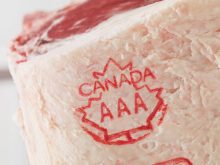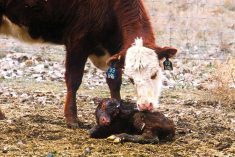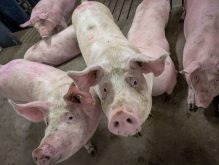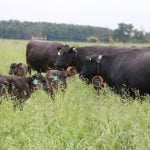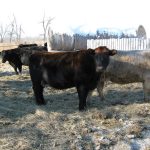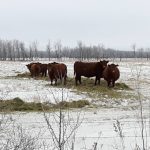Canada’s red meat sector is urging Parliament to reject the U.K.’s accession to the Comprehensive and Progressive Agreement for Trans-Pacific Partnership.
“Fair and open market access has allowed both the beef and pork industries to thrive, so our opposition is not something we have entered into lightly or without consideration,” said Chris White, president and CEO of the Canadian Meat Council, in a joint release by that organization, the Canadian Cattle Association and the Canadian Pork Council in mid-July.
Why it matters: The major Canada-Europe trade agreement, CETA, made big promises to the beef and pork sectors that never materialized, and meat sectors worry that the U.K. joining CPTPP will bring similar issues to that deal.
Read Also
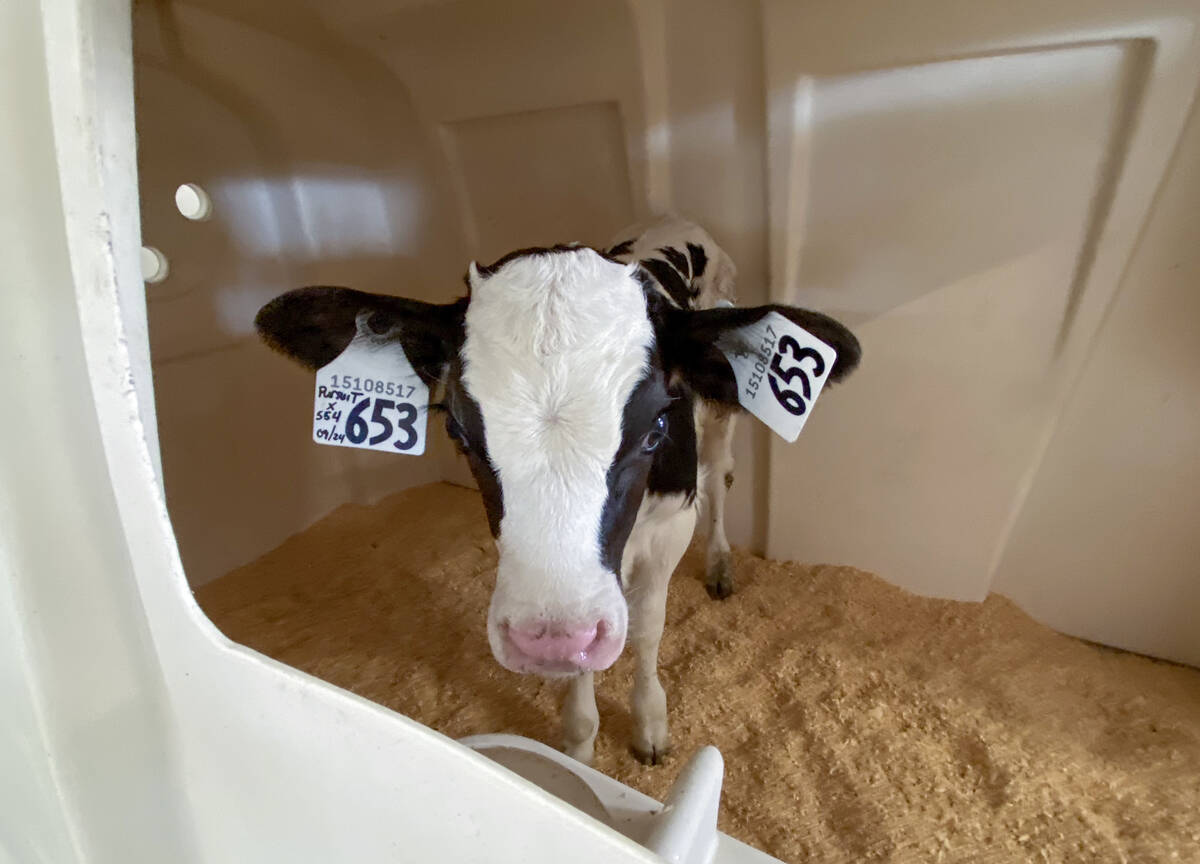
Plan toward better calves for healthier, more profitable dairy herds
Improved colostrum management, nutrition, and prevention-first health calf programs are boosting herd profitability, efficiency, and milk production.
The CPTPP is a trade agreement between Australia, Brunei, Canada, Chile, Japan, Malaysia, Mexico, New Zealand, Peru, Singapore and Vietnam. It came into force at the end of 2018.
The U.K. has since become the first nation to join the agreement outside of the original signatories (although China and Taiwan have also applied). It concluded talks to join CPTPP at the end of March this year and signed the protocol of accession on July 16. The proposition must now face a final vote in the legislatures of all 11 member countries.
“In our view, MPs should oppose the ratification of the U.K. accession to CPTPP,” said Canadian Cattle Association vice-president Tyler Fulton.
One of the meat sector’s concerns lies in the U.K.’s previous failure to accept Canada’s meat inspection system. The three organizations behind the July release maintain that rejection amounts to non-tariff barriers that limit their access to the U.K. market.
The concern echoes contention around Canada’s older deal with the EU, CETA, which was signed in 2016 and promised, among other things, annual access for 65,000 tonnes of tariff-free Canadian beef. A pre-Brexit U.K. was a member of that deal.

However, cattle growth hormones and common carcass washes used in Canada were not approved in Europe. Despite CETA being in force, little Canadian pork or beef is exported to Europe.
Fulton, who is also past-president of the Manitoba Beef Producers, says there are two main non-tariff barriers to the U.K. market.
The first is hormones. This applies specifically to beef, as the only livestock species for which hormonal growth promoters are approved. Agriculture and Agri-Food Canada lists six approved products: three natural (progesterone, testosterone and estradiol-17ß) and three synthetic (trenbolone acetate, zeranol, and melengestrol acetate).
The U.K. has taken a hard line on hormones in meat. In April, Canadian Press journalist Dylan Robertson interviewed the British High Commissioner to Canada, Susannah Goshko, regarding the issue. She said her country is not willing to compromise.
“People in the U.K. have been really clear with politicians on what their expectations are on that,” she was quoted as saying.
Goshko suggested that cattle farmers who complain about inability to access U.K. markets should produce hormone-free meat specifically destined for Britain.
Canada’s beef industry and the Canadian government are clear about the safety of hormone use in meat, but Fulton says that aspect was not the impetus for the joint release.
As with CETA, the U.K.’s rejection of proxyacetic acid (PAA) as an antibacterial carcass wash is a major problem.
“It is pretty much the standard across all slaughter plants in Canada,” said Fulton. “That is the sticking point.”
The ban on PAA, like many food regulations, was made while the U.K. was part of the EU.
In 2014, the European Food Safety Union released a scientific opinion on PAA, stating that it found no residual toxicity in meat treated with the wash. Nevertheless, the EU maintained its ban.
In reaction to the 2014 opinion, European consumer advocacy group Bureau Européen des Unions de Consommateurs argued against lifting the ban on the basis that it would counter the EU’s “from the farm to the fork” policy.
“Preventive actions, good hygiene, and controls must be applied throughout the food chain to minimize risks of contamination and ultimately ensure consumers can enjoy safe food,” the organization said.
Fulton and others bristle at the implication that Canada’s food chain is somehow compromised.
“The food safety system here in Canada is renowned around the world. It’s the gold standard,” he said. “(The PAA wash) is an additional measure that the Canadian plants take in order to ensure the safety of that meat, and the U.K. doesn’t acknowledge its use for that purpose.”
Fulton said PAA is allowed in other food manufacturing processes in the U.K., “so it truly is a non-tariff barrier that is preventing us access” and is not within the spirit of the CPTPP.
“Our hope was that they would be able to remove those barriers, because reciprocity, open trade and science-based rules have been key elements of the existing CPTPP deal.”
Unbalanced
There are also complaints that the agreement, as it is written, allows the U.K. full access to Canadian markets, but the same is not true in reverse.
The current “interim” trade agreement between Canada and the U.K. was based on CETA, with only minor modifications after Brexit.
Under that agreement, over the past two years, the U.K. has exported more than 7,000 tonnes of beef valued at almost $40 million to Canada. In contrast, Canada exported 657 tonnes of beef valued at $7.6 million to the U.K. in 2021 and no substantial volumes last year.
The situation for pork is equally poor. The U.K. shipped 1,300 tonnes of pork valued at $10 million in 2022, and Canada shipped virtually no pork to the U.K.
“For context, our exports represent darn close to 50 per cent of our total production,” said Fulton. “I don’t know what theirs is, but it wouldn’t be anything close to that.”
According to the joint release, the barriers that created that imbalance haven’t been addressed.
“The inclusion of the U.K. without adequate safeguards and market access provisions for Canadian pork raises concerns about potential imbalances and unfair competition,” said Stephen Heckbert, executive director of the Canadian Pork Council.
“We strongly urge the government to address these issues promptly and ensure Canadian pork producers are not disadvantaged in this new trade landscape.”
In Fulton’s view, these issues should have been resolved long before it came to a vote on accession.
“It’s our understanding that there is unlimited access for the U.K. to both Australia and New Zealand, and they have unlimited access back to the U.K.,” he said. “It’s my understanding that Australia and New Zealand did their bilateral agreements in advance of the CPTPP accession of the U.K., but Canada didn’t complete theirs.”
The federal government says it has heard the concerns of Canadian meat producers.
Canadian Trade Minister Mary Ng wasn’t available for comment, but a representative from her office said Canada and Britain are now negotiating a separate bilateral trade deal.
“Minister Ng stands behind Canadian farmers and exporters who produce some of the best beef and pork in the world,” the representative said. “(Agriculture) Minister Bibeau and CFIA officials are in active discussions with their U.K. counterparts and have raised this at every single opportunity with the U.K.”
The spokesperson noted that Canada’s meat industry has greatly benefited from the CPTPP, with the value of beef exports to member countries rising by half a billion dollars and pork exports increasing nine-fold.
Fulton acknowledged the industry has benefited.
“The CPTPP has been an excellent trade agreement that has allowed us to access countries like Japan and Vietnam,” he said.
He’s concerned that the U.K.’s inclusion will water down the deal.
“We are concerned that it will be precedent-setting and lower the standard for new members that is currently expected among the agreement founders,” he said.




